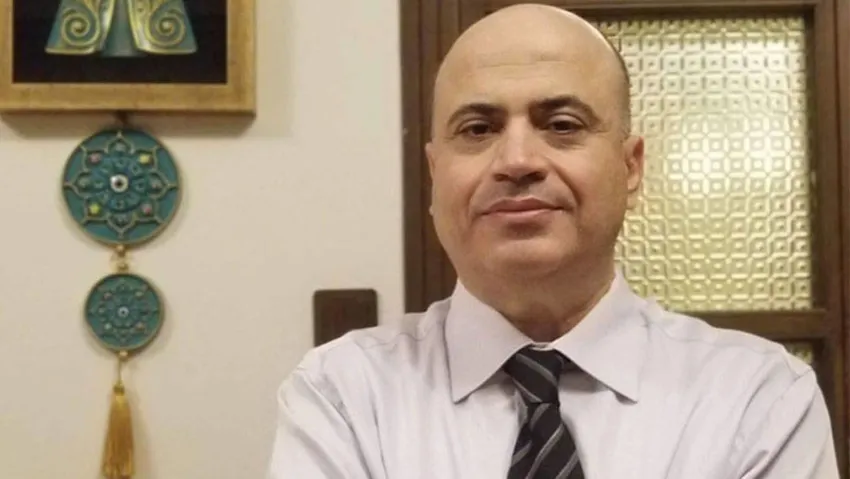A pediatric psychiatrist in Turkey faces a 943-year prison sentence on charges of administering illicit substances to his patients and manipulating them into making false accusations of sexual abuse against their families, allegations that have sparked a nationwide debate and raised concerns over potential efforts to cover up sexual abuse.
Prof. Dr. Süleyman Salih Zoroğlu, who previously headed the department of child psychiatry at İstanbul Çapa University’s medical faculty, is accused of using ketamine — a substance associated with a series of hallucinogenic and euphoric effects — in treating dissociative identity disorder (DID) in his patients and manipulating them into accusing their family members of sexual abuse.
İstanbul’s Bakırköy Chief Public Prosecutor’s Office drew up an indictment against Zoroğlu, the Habertürk news website reported on Wednesday.
According to the indictment, Zoroğlu administered ketamine to 21 children between the ages of 7 and 18. The indictment requests that Zoroğlu and Ahmet Aktaş, who worked as a psychologist at his clinic, be convicted of 21 counts of “trafficking illicit drugs or stimulants,” 21 counts of “torture,” four counts of “defamation,” two counts of “deprivation of personal liberty,” two counts of “extortion,” two counts of “promoting drug use,” one count of “unlawfully obtaining personal data” and one count of “invasion of privacy.”
In the indictment Zoroğlu, his assistant Aktaş, Dr. Zeynep Akgü, Zoroğlu’s wife Özgül Zoroğlu, the clinic secretary İnci Arslan and another psychiatrist, Hüsna Ağca, were listed as defendants.
Following Zoroğlu’s arrest in September, a social media account purportedly managed by his family has been actively defending the psychiatrist, emphasizing the legality of ketamine in treatment for DID. Through the account, Zoroğlu has exhibited dismay over the media’s role, fearing the further victimization of abused children through misinformation.
The account highlighted that Zoroğlu has made significant contributions to the field, having worked for over 30 years and being the most published and referenced scientist in Turkey in the field of DID. Zoroğlu asserted that his methods are based on internationally recognized practices and expressed optimism that the ongoing investigations will ultimately reveal the truth.
Turkish Medical Association (TTB) President Şebnem Korur Fincancı advised a cautious approach to the developing story and called for a comprehensive investigation that considers all aspects of the case before drawing conclusions.
In contrast, the Association of Child and Adolescent Psychiatry of Turkey condemned the methods used by Zoroğlu as “unscientific and unethical.” They pointed out the potential risks of using ketamine in child psychiatry, a practice that is not accepted worldwide due to the neurotoxic effects and addiction risks associated with it.
In his defense Zoroğlu admits that his treatments are risky but denies any wrongdoing. He says the lack of peer support for his methods puts him in a difficult position in the face of the accusations.
The indictment also implicates others, including Zoroğlu’s wife, colleagues and a secretary.
The allegations against Zoroğlu have surfaced in a country where the judiciary has often been criticized for its alleged bowing to political pressure, a situation highlighted by various international bodies and democracy indexes.
What further fuels speculation about the credibility of the allegations is the fact that Zoroğlu was fired from his job at the university in an emergency decree after a failed coup in 2016, in the wake of which tens of thousands of dissidents were purged from Turkey’s state institutions.
Turkey experienced a coup attempt on the night of July 15, 2016 that killed 251 people and wounded more than a thousand others. Turkish President Recep Tayyip Erdoğan and his ruling Justice and Development Party (AKP) government immediately pinned the blame on the Gülen movement, a faith-based group inspired by Muslim preacher Fethullah Gülen, labeling it as a terrorist organization.
Although Gülen and the movement strongly deny involvement in the abortive putsch or any terrorist activity, Erdoğan initiated a widespread purge aimed at cleansing sympathizers of the movement from within state institutions, dehumanizing its popular figures and putting them in custody.
Some critics hinted at a possible coverup carried out by influential families to conceal abuse cases, leveraging their political connections to the AKP.
In tandem with the critics’ concerns, pro-government media outlets covering the story emphasized Zoroğlu’s dismissal from his job after the coup as evidence of malpractice, claiming that the psychiatrist was a member of the Gülen movement and thus a “terrorist.”
This led to speculation regarding the credibility of the allegations against Zoroğlu, with many emphasizing the role of the media in potentially manipulating the narrative.



